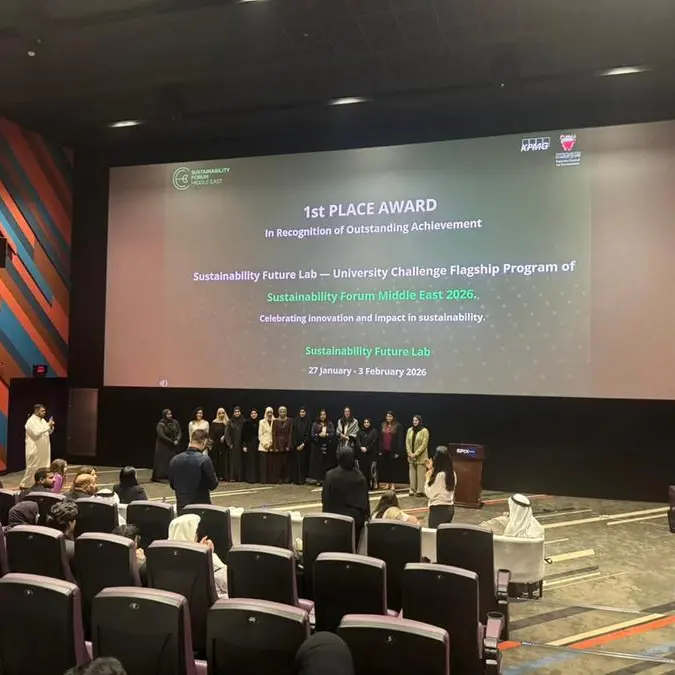PHOTO
Kuala Lumpur, Malaysia: A lively discussion at the panel session titled, ‘Fostering Finance at Scale through Capital Markets’, during The Global Forum of Islamic Economics and Finance (GFIEF) 2024, highlighted the vital role of capital markets in promoting diversified and inclusive economic growth. The session underscored the importance of sustainable bonds and sukuk instruments in driving credible climate transitions with significant allocations directed towards decarbonising the energy, properties and transport sectors. The emergence of social stock exchanges was also noted in enabling ethical investors to channel high-quality capital towards impactful social initiatives.
Tan Sri Wahid Omar, Chairman of Bursa Malaysia, shared that the Islamic capital market currently accounts for RM2.5 trillion or 63% of the overall market, and the Shariah-compliant equity market continues to grow post-pandemic. He also highlighted innovative platforms introduced to cater for specific purposes and needs in the ecosystem, such as Bursa Suq Al Sila (BSAS), a commodity trading platform that facilitates Islamic liquidity and financing.
The more recent outstanding achievement was the introduction of the Bursa Carbon Exchange (BCX) in 2022, the world’s first Shariah-compliant voluntary carbon market, which enables companies to offset their emission footprint and meet climate goals. Wahid also emphasised on the need for coordinated efforts to pivot towards developing purpose-based financial instruments to ensure greater alignment with Sustainable Development Goals (SDGs).
Mohamad Safri Shahul Hamid, CEO of the International Islamic Liquidity Management Corporation (IILM), critiqued that despite the remarkable progress of the capital market, Islamic finance still represents a small fraction of the global financial market. He encouraged the younger generation to pursue careers in Islamic finance, stressing that the industry is still in its early stages with vast potential for future growth.
Safri also noted the challenges faced by Islamic finance, particularly in gaining broader acceptance and integration within developed markets and among major economies like the G20. He noted that only five sovereigns in the Islamic finance world are rated A and above, illustrating the uphill battle for wider recognition and implementation. He called for continuous efforts to push the agenda of Islamic finance, not just as an alternative but as a mainstream and ethical financial system.
The session also delved into the advancements in sustainable sukuk, tracing its development from the world's first green sukuk in 2017 to various notable issuances by governments and corporations. These instruments have funded a range of projects from solar power to educational initiatives, showcasing their versatility and socio-economic impact. The conversation moved towards future trends, with expectations for more innovative financial structures, diversified Shariah contracts and the integration of digitisation and tokenisation in capital markets.
YM Raja Amir Shah Raja Azwa, CEO of HSBC Amanah Malaysia Berhad, discussed the potential of mobilising new classes of investors, such as impact investors, philanthropic funders and zakat agencies, to support projects with significant social and environmental benefits. He stressed the importance of building appealing propositions for these investors to ensure that their investments generate measurable impacts alongside financial returns.
Dr. Ramaswami Balasubramaniam, Chairman of the Social Stock Exchange Advisory Committee at the Securities and Exchange Board of India, shared insights on India's efforts to integrate social impact into financial markets. He highlighted the creation of innovative instruments like zero-coupon and zero-principal bonds and the establishment of comprehensive frameworks for social impact measurement. He urged for the importance of transparency, accountability and capacity-building to foster a robust social finance ecosystem.
The panel session concluded with a call-to-action for policymakers, market participants and investors to collaborate in driving capital market innovation. The goal is to align financial practices with broader social and environmental objectives, which in turn promotes economic transformation and shared prosperity at a global scale.
Under the patronage of the Ministry of Finance Malaysia (MOF), GFIEF is organised by Bank Negara Malaysia in collaboration with the Securities Commission Malaysia, Labuan Financial Services Authority, the International Islamic Liquidity Management Corporation, the Islamic Development Bank (IsDB), the Islamic Financial Services Board and the World Bank Group (WB).
-Ends-
About GFIEF 2024:
The Global Forum on Islamic Economics and Finance (GFIEF) brings together over 2,300 policymakers, industry leaders and practitioners from 75 countries in Kuala Lumpur. Themed ‘Shaping a Resilient Global Islamic Economy Through Values-based Reforms’, the two-day forum aims to unlock the transformative power of Islamic economics and finance in fostering shared prosperity and equity. GFIEF features policy discourse and innovative solutions based on Islamic economics and finance principles to address the world's challenges.
For more information, please visit kl.gfief.com.my
Media Contact:
- Wai Fong TAN (Ms)
- Media Co-ordinator
- waifong@twfcomms.com




















